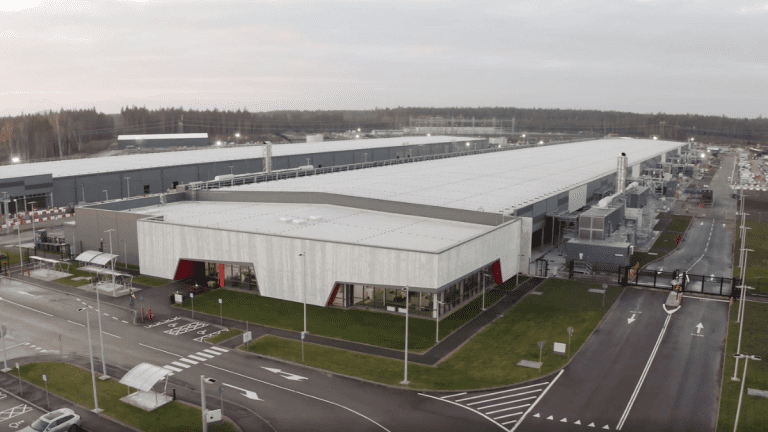
🕒 Last updated on July 14, 2025
One of Europe’s most significant data center markets is quickly emerging: Sweden. With its strong focus on renewable energy, cool climate, and government support, the country is now a hotspot for digital infrastructure.
Sweden’s Green Energy Fuels Data Centre Expansion
According to recent industry research, Sweden’s data centre market is valued at around US$2 billion in 2024. It is anticipated to expand quickly, reaching US$3.8 billion by 2030. This marks a strong growth rate of 11.29% every year.
A big reason behind this growth is Sweden’s clean energy. Most of the country’s power comes from carbon-free sources like hydroelectric, nuclear, wind, and solar energy. These green energy sources make it very attractive for companies that want to lower their environmental impact.
In total, Sweden has about 160.8 megawatts (MW) of power capacity available in third-party data centre facilities. An extra 150 MW is currently being built or planned. This means more space and power will soon be available for cloud companies, streaming platforms, and other tech giants.
Stockholm, the capital city, is the central hub for most of this activity. It offers a stable energy grid and fast internet and now also has prime commercial rent rates reaching US$1,000 per square meter by the end of 2024.
Big Tech and Telecoms Drive Rapid Digital Shift
Sweden is moving quickly from traditional on-site computer systems to modern cloud-based services. This shift is driven by rising digital needs across Europe. As companies and people use more online tools, demand for powerful and secure data centres continues to rise.
Leading this expansion are major firms like Equinix, Digital Realty, AWS, and atNorth. They are building and expanding data centres across the country. At the same time, global technology companies such as Meta, Oracle, and Microsoft are working to improve Sweden’s digital talent by supporting innovation in education and job training.
The Swedish government is also playing a key role. By offering tax benefits and making permits easier to get, it has created a friendly environment for investors and tech companies. Some areas are being turned into free zones, offering extra incentives to businesses that invest in data centres.
Telecom companies like Telia and Ericsson have helped support this expansion by rolling out fast and reliable 5G networks across the country. This has made it easier for businesses and people to connect quickly and efficiently to cloud services.
Swedish companies are now depending more on managed services rather than building their own data systems. This change has helped boost the demand for colocation and cloud data centres, where multiple businesses share the same physical infrastructure.
Climate and Sustainability Shape Data Centre Design
Sweden’s natural environment gives it a big advantage. Its cold weather means that data centres don’t have to use as much energy for cooling. This is known as “free cooling,” and it helps save money and reduce carbon emissions.
Some operators are also using heat reuse systems. These systems take the heat produced by servers and reuse it to warm homes and offices nearby. This clever use of energy makes data centres even more eco-friendly.
In March 2025, a significant new cloud region was opened by Google just outside of Stockholm. This facility, named Europe-north2, is the tech giant’s 42nd global cloud region and its 13th in Europe. Customers include major Swedish companies like IKEA and Tradera.
To support this new centre, Google signed long-term deals for over 700 MW of wind energy in Sweden. This ensures that its operations stay carbon-free while delivering high-speed cloud services to users across Europe.
With more than 150 MW of new power capacity under construction, Sweden’s data centre infrastructure is set to expand quickly. This comes at a time when digital services are growing faster than ever.
As of December 2024, Stockholm has already seen a big increase in data centre space and capacity. This trend is expected to continue as cloud demand rises. Operators are racing to complete construction and start operations within the next couple of years.
Sweden’s data centre market is powered by a mix of green energy, cold weather, strong internet infrastructure, and digital readiness. With more data being created every second, the role of data centres in our lives will only grow—and Sweden is leading the way in making them cleaner and more efficient.